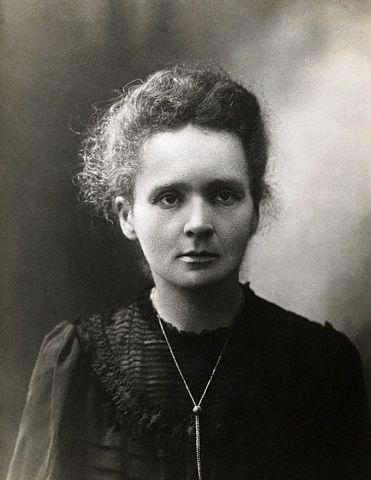When science comes to the matter of bestowing its rewards it should be blind to the mere accident of sex; and one does not have to be an enthusiast on the subject of the extension of the rights and privileges of her sex, to feel that here is a woman who, by her brilliant achievement, has won the right to take her place with her compeers in the Academy, or any similar institution devoted to the furthering of science. The scientific world will undoubtedly agree with Gaston Darboux, Secretary of the Academy of Sciences, in urging the right of Madame Curie to succeed to the position of which her late husband was next to the last occupant.
So says an editorial that ran in the January 21st, 1911 issue of Scientific American. This was a time when neither the US, or France allowed women the same democratic rights as men. Marie Curie, who had already won her first Nobel Prize, was the first female head of the physics laboratory at Sarbonne, a French citizen, and held both a doctorate and a professorship in the field, was denied entry to the French Academy of Sciences because of her gender, her nationality of birth and (false) rumors that she was Jewish.
Naturally, in response, Curie “would not allow her name to be resubmitted for nomination and wouldn’t let the Academy publish any of her work for a decade.”
The editorial goes on:
As far as the learned societies of other countries are concerned, the election of a woman to the Academy would certainly not be without precedent. Several foreign bodies, indeed, including the Philosophic Society of Philadelphia, have already welcomed her into their membership. Darboux instances the case of the Countess Ersilia Lovatelli, who, as dean of the Archreological section of the Royal Academy of Italy, took a prominent part at a recent meeting of the Academy of Rome, and also that of Elise Wendel, who was a prominent figure at Berlin in 1900 during the centennial celebration of the German Academy of Sciences. To these cases we might add those of Hertha Ayrton, the only woman member of the Institution of Electrical Engineers of Great Britain, who was considered eligible for election to that distinguished body, because of her discovery of the laws governing certain phenomena of the electric arc, and that of Lady Margaret Lindsay Huggins, who, because of her valuable work in astronomy and her contributions to the journals devoted to that branch of science, was elected an honorary member of the Royal Astronomical Society.
Elsewhere in this issue reference is made to the fact that a statistical study of American men of science has led Prof. Cattell to draw attention to the fact that women are contributing but a very small share to productive scientific work. If this be so, it is obvious that to contest the right to recognition of such women is further to discourage the entrance of women into a sphere of work in which their patience, intelligence, and strong intuitive perception render them peculiarly well fitted to labor.
The knowledge that people were aware and supportive of women in 1911 might be more uplifting, if not for the fact that people still feel compelled to make these points today, more than a century later.
For the whole editorial, see The Scientific American. For more on why Curie was denied membership in the academy, see Wired.
(Steve Silberman via Jennifer LucPiquant)








Published: Dec 6, 2011 02:03 pm